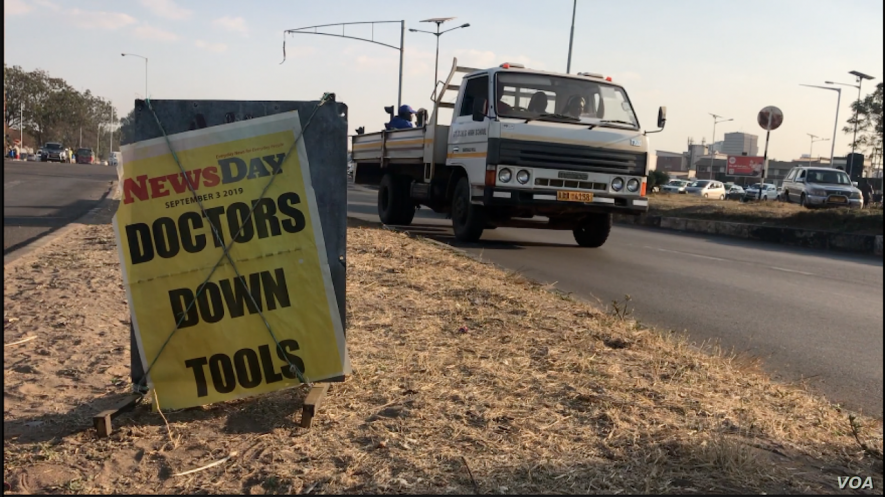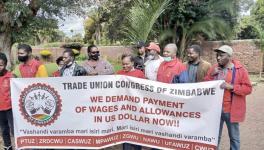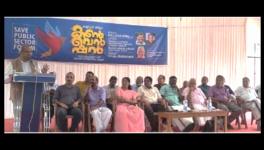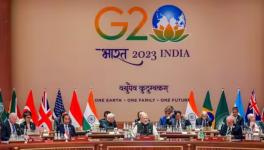Doctors in Zimbabwe’s Public Hospitals Go On an Indefinite Strike

Yesterday, September 3, hundreds of doctors across Zimbabwe’s public hospitals organized in the Zimbabwe Hospital Doctors Association (ZHDA) began an indefinite strike to demand that their salaries be restored. Doctors in Zimbabwe, like other civil servants, have suffered from the continuous erosion in the value of their salaries and they have complained that due to the rise in prices, they are unable to afford the resources required to report to work.
The doctors represented by the ZHDA from Mpilo, Bulawayo United, Parirenyatwa Group, Harare and Chitungwiza central hospitals will not return to work until the value of their salaries is restored to match the rising prices of commodities.
The strike action came after negotiations between the government and the Apex Council, which represents a number of civil servants’ unions, failed to reach an agreement to restore the value of salaries lost by civil servants over the last few months.
Payment in USD was abandoned after RTGS was introduced as the new currency in October 2018. Since then, the salary of the lowest paid public doctors, when measured in USD equivalent, dropped from USD 475 to USD 40.
The measurements are given in USD terms because prices in RTGS, including that of basic commodities such as bread and medicine, have been varying in accordance with the value of the RTGS:USD ratio. Initially, when the new currency was introduced, it was pegged to USD at a 1:1 ratio. However, with a continuous slide in its value, it now takes more than 10 RTGS dollars to buy 1 USD.
Throughout this period of decline, wage payments to civil servants made in RTGS remained the same. As a consequence, their real incomes have reduced to less than 10% of what they were before.
The Apex Council demanded that the salaries be restored to an RTGS equivalent of USD 475 and be fixed to the interbank ratio, so that any further decline in the value RTGS vis-a-vis USD would increase their pay proportionally and offset any loss of income.
However, the government, on August 23, proposed a mere 60% pay hike for doctors which would raise the salary of the lowest paid doctors to USD100. For other civil servants, including teachers, a hike of 76% was suggested, as the salaries of the lowest paid among them dropped to as low as USD 30, last month.
The offer was accepted two days later, only as a temporary relief measure. Apex Council chairperson, Cecilia Alexander, has stated that, “It must be reiterated that this is a provisional agreement meant first and foremost to allow the government to cushion its impoverished civil servants. Our substantive demand of 4,750 [RTGS] dollars, which is bench-marked against the inter-bank rate, still stands and negotiations still continue towards that end.”
Both the doctors’ and teachers’ unions, represented by the Apex Council, have rejected this offer as insufficient. Pointing to the “skyrocketing of prices in the market.. fuel rising by 900 percent, food by 500 percent, our rents hiking,” ZHDA acting president, Peter Gabriel Mugombeyi said that a 60% hike was “grossly insufficient”.
On August 30, in a letter forwarded to the authorities, including the Minister of Health and Childcare and the Permanent Secretary for Health, ZHDA had stated, “We simply do not have the means to continue coming to work because the salary is not sufficient.”
This dire situation was the impetus for doctors to organize the strike action to demand that their salaries be restored.
Zimbabwe’s health minister has threatened to forbid such indefinite strikes by doctors, insisting that the government expects “that our workers stick to the fact that they are in an essential service. As an essential service, you cannot just…disappear and leave your patient alone.”
However, Mugombeyi maintains that “We are not downing the tools per se. We are simply incapacitated. We simply do not have the means to report for work.”
The ZHDA, in a previous letter sent on August 14, had already alerted the government authorities about the “total incapacitation” of its members, “giving the employer a grace period of three weeks…to present practical solutions to our financial crisis.”
While wages have remained virtually stagnant over the past months, “prices of basic goods and services have been rising astronomically,” the union pointed out. While highlighting the toll this is taking on doctors, the letter stated, “Members are struggling to meet the costs of basic needs i.e food and shelter, let alone clothing and healthcare. Forget sending our children to school and paying our bills.”
While the Apex Council negotiations were ongoing, the union members, “in good faith”, continued to shoulder the burden of practicing a profession that is categorized as an ‘essential service’, by using the little savings they had or by borrowing money to report to work. “[B]ut unfortunately all our resources have now been exhausted,” ZHDA’s letter proclaims.
Get the latest reports & analysis with people's perspective on Protests, movements & deep analytical videos, discussions of the current affairs in your Telegram app. Subscribe to NewsClick's Telegram channel & get Real-Time updates on stories, as they get published on our website.
























